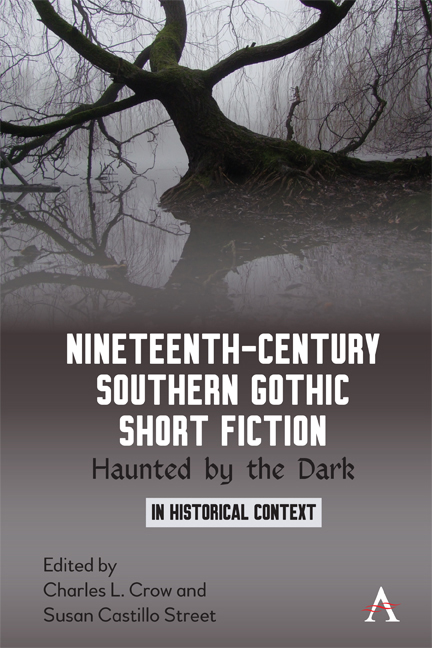Chapter Five - George Washington Cable, “Belles Demoiselles Plantation” (1879)
Published online by Cambridge University Press: 20 January 2022
Summary
George Washington Cable was born in New Orleans in 1844. After serving in the Confederate Army during the Civil War, he became a journalist, contributing articles to the New Orleans Picayune. His activities as a reporter exposed him to the complexities of racial and social structures in the South and provided a rich vein of material which would later serve as inspiration for his historical fiction. His short stories were initially published by Scribner's Monthly as local color fiction, and subsequently as part of a collection, Old Creole Days. In his fiction, Cable depicts the collision between the rigid racial classifications of the Anglo-Americans who poured into New Orleans after 1803 and the intricate webs of family allegiances in Francophone New Orleans.
In “Belles Demoiselles Plantation,” we encounter Coronel de Charleu, a member of the old New Orleans Creole elite, and his mixed-race Choctaw relation, Injin’ Charlie. The story is notable for its depiction of the ethical dilemmas arising from the convoluted nature of interracial sexuality as it collides with the arbitrary racial categories of nineteenth-century Louisiana.
Text: George Washington Cable, Old Creole Days (New York: C. Scribner's Sons, 1879).
BELLES DEMOISELLES PLANTATION
THE original grantee was Count—, assume the name to be De Charleu; the old Creoles never forgive a public mention. He was the French king's commissary. One day, called to France to explain the lucky accident of the commissariat having burned down with the account-books inside, he left his wife, a Choctaw Comtesse, behind.
Arrived at court, his excuses were accepted, and that tract granted him where afterwards stood Belles Demoiselles Plantation. A man cannot remember every thing! In a fit of forgetfulness he married a French gentlewoman, rich and beautiful, and “brought her out.” However, “All's well that ends well”; a famine had been in the colony, and the Choctaw Comtesse had starved, leaving nought but a half-caste orphan family lurking on the edge of the settlement, bearing our French gentlewoman's own new name, and being mentioned in Monsieur's will.
And the new Comtesse—she tarried but a twelvemonth, left Monsieur a lovely son, and departed, led out of this vain world by the swamp fever.
- Type
- Chapter
- Information
- Nineteenth-Century Southern Gothic Short FictionHaunted by the Dark, pp. 55 - 68Publisher: Anthem PressPrint publication year: 2020

